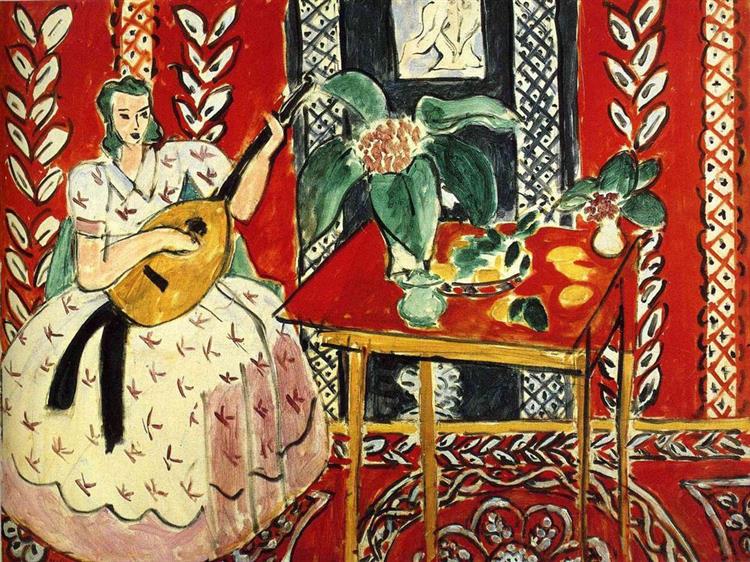Description
Henri Matisse, one of the most eminent figures of modern art, gifts us with "The Lute," a work that continues to encapsulate the essence of his unmistakable style and mastery in the use of color and simplification of forms. Created in 1943, this painting reflects a period of introspection and exploration in the vast career of the French artist.
At first glance, "The Lute" stands out for its balanced and harmonious composition. The arrangement of the elements is immediately recognizable; a female figure is presented at the center of the scene, cradling a mandolin, a moment of serenity and contemplation that captures an eternal instant. This figure, with her delicate hands gently enveloping the musical instrument, seems to be immersed in a silent melody that only she can hear, allowing the viewer to immerse themselves in an atmosphere of calm reflection.
However, what truly elevates this work is the masterful use of color. Matisse, known for his bold use of vibrant tones, employs in "The Lute" a palette of harmonious colors that bring life and depth to the composition. The warm and soft tones of the figure's skin contrast with the intense and saturated colors of the background, creating a balance that directs the observer's attention to the focal point of the work without diminishing the importance of the surrounding elements.
The female figure has a serene, almost meditative expression on her face, suggesting an intimate connection with the music, evoking a moment of introspection and peace. Matisse always sought to capture not only the external appearance but also the internal essence of his subjects, and in this painting, he manages to convey a sense of calm and serenity that deeply resonates with the viewer.
In the historical context, 1943 was a year marked by World War II, and although the conflict ravaged Europe, Matisse, who faced his own personal health struggles, continued to dedicate himself to art. This work can be interpreted as a spiritual refuge, an escape from the surrounding chaos through the beauty and tranquility of art and music.
"The Lute" is not just a painting; it is a visual symphony that choreographically encapsulates the spirit of the era and Matisse's artistic philosophy. In its immortalization of a moment of serenity and beauty, and in its unwavering commitment to the expression of the essential, Matisse invites us to find peace and harmony amid disorder and turbulence, a message that remains profoundly relevant today.

